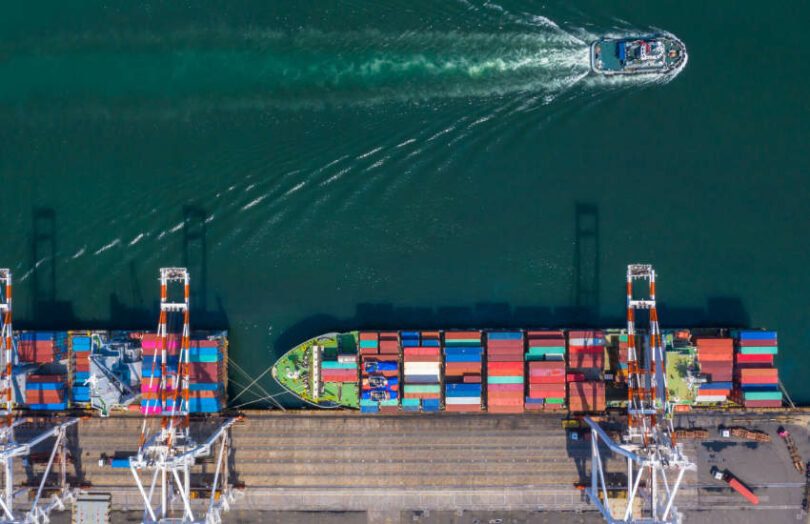Today the Digital Container Shipping Association (DCSA) said that nine major ocean carriers have committed to issuing half of bills of lading electronically within five years and 100% in ten years. This is a massive boost for DLT, given that eight of ten electronic bills of lading (eBL) solutions use blockchain.
The DCSA has developed the industry standards for eBL, which the cargo carriers have agreed to adopt. The shipping firms that signed up are MSC, Maersk, CMA CGM, Hapag Lloyd, ONE, Evergreen Marine, Yang Ming, HMM and ZIM. These represent eight of the ten largest container shippers, with China’s COSCO as the one big omission.
Electronic bills of lading are critical documents in international trade, representing ownership of the goods in transit. They are a foundational document for trade finance. Despite most businesses going digital, eBL accounts for a tiny fraction of issued bills of lading, estimated at around 1.5%.
Hence a shift from 1.5% to 50% will be a significant move and a strong push for blockchain adoption.
“A fully digitised bill of lading enables a more seamless customer experience across the supply chain and in turn it will help democratise trade and reduce time and costs for all involved parties,” said Vincent Clerc, CEO A.P. Moller -Maersk. “The need for digitisation in logistics is urgent, and the industry needs to speed up the process.”
Soren Toft, CEO of MSC added, “Moving to 100% eBL will contribute towards our climate goals, as we move towards net zero 2050.”
A recent McKinsey study estimated eBL could provide $6.5 billion in direct cost savings and $30 – $40 billion in boosting global trade volume.
One of the impediments has been the interoperability of different eBL solutions. But the DCSA has been working on that with four providers demonstrating interoperable solutions.
A boost for blockchain in shipping and trade
Ten eBL solutions are supported by the International P&I Group, whose members provide protection and indemnity (P&I) insurance cover for around 90% of the world’s ocean-going cargo by tonnage.
Of those ten solutions, eight are blockchain-based, with the exception of EssDOCS and Bolero. However, these two have nonetheless integrated with other blockchain trade and trade finance solutions.
P&I approved eBL solutions:
- EssDOCS (not blockchain)
- Bolero (not blockchain)
- E-Title
- edoxOnline
- WAVE
- Cargo X
- TradeLens eBL (TradeLens has shut down)
- IQAZ
- Secro
- TradeGo
Late last year Maersk announced the closure of its blockchain container shipping initiative TradeLens.






